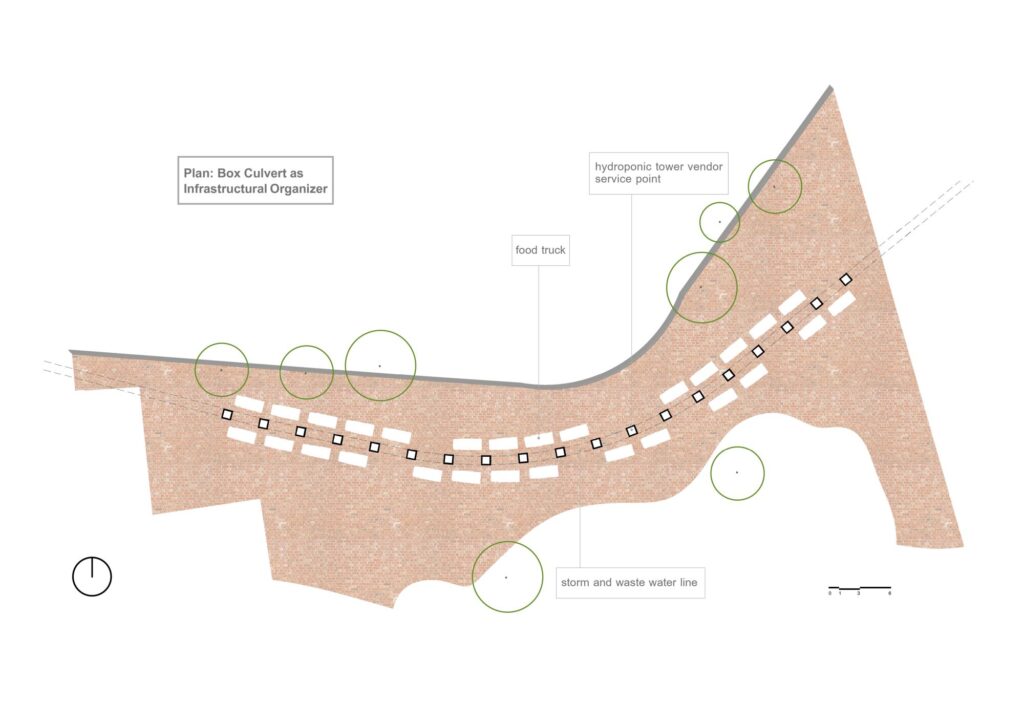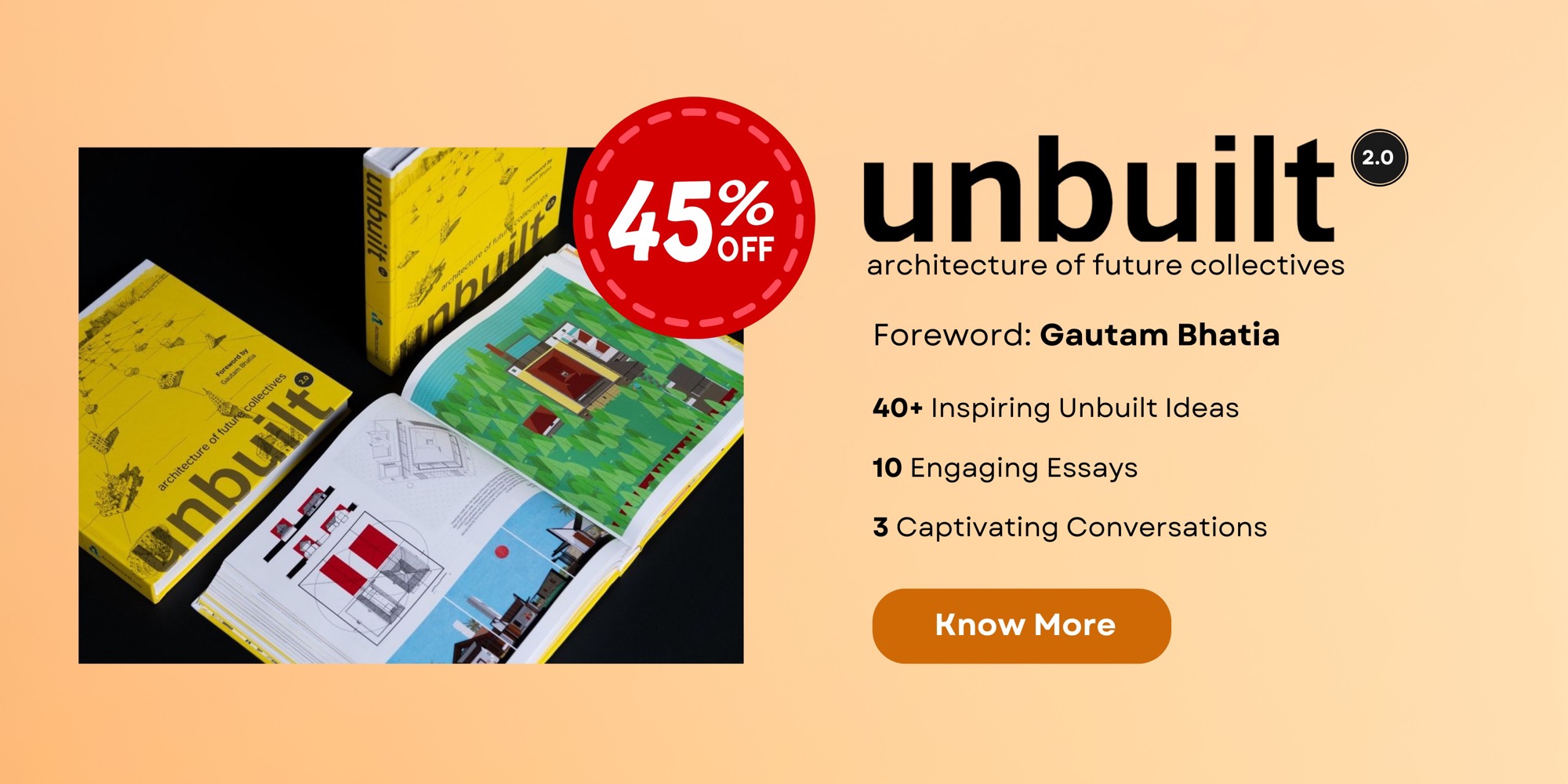Location: Mehsana, Gujarat | BandukSmith Studio
In small towns and cities across India, the provision of infrastructure for water supply and sanitation is an ongoing project. Many places, with populations of tens of lakhs, maintain incomplete sewerage networks and spotty water supply systems. They also host significant informal commerce, a typical condition of the Indian street, which is flexible and adaptive but produces significant amounts of waste. This proposal for the municipality of Mehsana, Gujarat, uses the introduction of a new sewage and stormwater line to create plugin infrastructure for a food vendor park. It is an important project for the future because it imagines what happens when public infrastructure is leveraged for the creation of good public space and works with existing chaos. Instead of removing informal elements to “clean” the city, this taps into their latent organizational structures and simply adds service points that can support a healthy system of public space temporary commerce.

The design takes a box culvert, already planned for the containment of open sewage in a low-lying area in Mehsana’s town centre, and adds to it a series of “hydroponic towers.”

Dispersed along the line, these extruded, reinforced concrete boxes work to filter noxious gases from the sewage and provide service points for vendors, which also gives them a fixed location along the line.

The towers support a tray of drought-resistant plans through a simple, non-mechanical system of suspended ropes, relying on the capillary action of the material to move the water up to the plant roots. As they process the water they may also reduce pollutants in it. The height of the tower shields people from any effect of gases released. As a vendor service point, it is outfitted with taps and electrical points. Lighting for the public space sprouts from the sides of the tower and drainage for runoff is positioned along the line.




